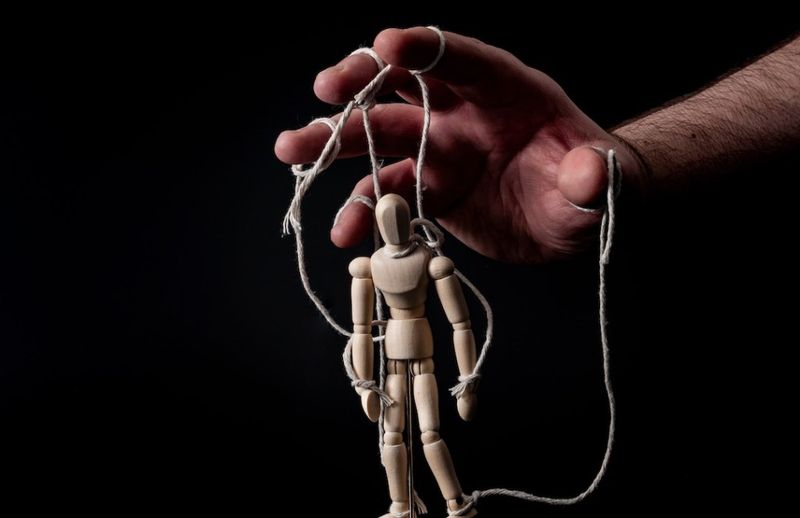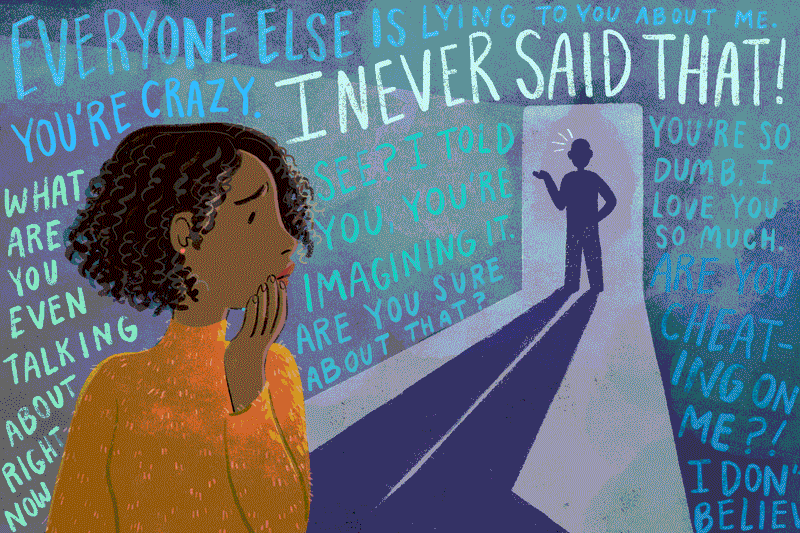Because “You’re too sensitive” isn’t a conversation, it’s a power move.
Manipulation doesn’t always scream danger. In fact, it usually tiptoes in sounding harmless, maybe even sweet. That’s the real trouble: manipulative people rarely announce themselves. They use words to twist your feelings, turn your confidence upside down, and leave you wondering if you’re the problem.
The most frustrating part? It’s all done with a straight face, sometimes even a compliment or a joke. If you’ve ever walked away from a chat feeling smaller than when you started, or like you just lost a secret battle you didn’t sign up for, you’re not alone.
Below are 16 sneaky phrases that manipulative folks love using. These are your red flags—your permission slip to trust your gut and walk away if you need to.
1. "Stai esagerando".
Ever had someone tell you that you’re blowing things out of proportion? It’s like being handed a tiny emotional straightjacket. These words creep in when you finally speak up about something that genuinely bothers you, only to be told your feelings are too much.
This phrase doesn’t just dismiss your reaction—it dismisses you. It makes you second-guess your instincts, leaving you wondering if maybe you are the dramatic one. Spoiler: you’re not. They’re just dodging accountability.
When “you’re overreacting” comes out, what’s really going on is a power move. They want control of the narrative and your emotions. It’s a way to keep you quiet while they keep doing what they want. Remember, your feelings are valid. Always.
2. “I guess I’m just the bad guy then.”
Cue the Oscar-winning performance. This line is the manipulator’s favorite guilt grenade. One minute you’re calmly explaining how something hurt; next, you’re comforting them for being “the bad guy.”
It’s a sneaky way to flip the script. Suddenly, you’re the mean one for noticing their behavior, and they’re the misunderstood martyr. What was supposed to be an honest chat gets hijacked by their need for sympathy.
If you’ve ever found yourself apologizing just to make the awkwardness stop, you know this move. It’s not about fixing the problem; it’s about making you responsible for their feelings. Don’t buy it. Guilt is not a valid currency in healthy relationships.
3. “If you really loved me, you would…”
Nothing says “red flag” quite like someone using love as a bargaining chip. If your affection suddenly comes with a list of conditions, that’s not romance—it’s emotional blackmail, wrapped in glitter paper.
This phrase shows up when someone wants their way and can’t get it by honest means. The subtext? “If you don’t do what I want, you clearly don’t care enough.” It’s controlling, plain and simple.
Love isn’t about passing tests or jumping hoops. It certainly isn’t about earning points toward basic respect. If anyone ever tries this on you, remember: Healthy love doesn’t ask you to prove yourself. It celebrates you for who you are, no negotiation required.
4. “You’re just insecure.”
Ever notice how this one pops up right after someone’s shady behavior? Maybe you found a suspicious text or spotted some flirty banter, and suddenly the conversation is about your “issues.”
It’s a classic deflection. Instead of taking ownership, they flip the lens onto your supposed flaws. The real trick? They make you question your gut instincts—the ones that are often right on target.
If someone uses your vulnerability as ammunition, that’s not support—it’s manipulation. Don’t let anyone shame you for noticing what your intuition is telling you. Insecurity isn’t the problem here; dishonesty is.
5. “You’re making a big deal out of nothing.”
Here comes the parade of minimization. When you try to talk about your feelings, this line rolls out like a foghorn, flattening your concerns until they seem microscopic.
The goal? To sidestep any real conversation and keep things comfortably under their control. Suddenly, what hurt you is “nothing,” and now you’re cast as the one starting drama. If you push back, they’ll act like you’re impossible to please.
But here’s the truth: If it stings, it matters. You deserve someone who listens, not someone who shrinks your experiences into “nothing.” Don’t let anyone shrink your truth to make their lives easier.
6. “I never said that.”
Gaslighting 101: rewriting history in real-time. This phrase is a manipulator’s secret weapon, designed to erase reality and make you second-guess yourself.
One day, you’re sure you heard something hurtful. The next, they’re adamant it never happened. Cue hours of replaying conversations in your head or scrolling through old texts, desperate to prove you’re not imagining things.
This isn’t forgetfulness—it’s a deliberate strategy to keep you off-balance. When you start doubting your own memory, you lose your footing in the relationship. Trust yourself more than their denials. Your recall isn’t broken—their honesty is.
7. “Why can’t you take a joke?”
Laughter isn’t always harmless—sometimes, it’s a mask for cruelty. This line gets tossed out after a “joke” lands squarely on your insecurities or private pain, and you wince instead of laugh.
They’ll act like you’re spoiling the fun, but the only one laughing is them. When your discomfort becomes the punchline, it’s not humor—it’s just mean. Honestly, if it hurts, it’s not a joke.
Don’t let anyone shame you for refusing to laugh at your own expense. You’re allowed to draw the line between playful teasing and emotional bruising. Your boundaries are not up for debate, not even at a party.
8. “Everyone else thinks you’re difficult, too.”
Ever been hit with the mysterious chorus of “everyone else”? Suddenly, you’re not just up against one person—you’re supposedly at odds with the whole crowd.
This line isn’t about honest feedback; it’s about isolating you, making you feel like a problem in the eyes of many. If pressed, the manipulator almost never names names. It’s all smoke and mirrors, meant to wear down your confidence.
If you feel alone in the room, pause and ask: Who, exactly, is “everyone”? Chances are, it’s just one person projecting their opinion, hoping you’ll start doubting yourself. Don’t give away your power to the invisible jury.
9. “You’re lucky I put up with you.”
This one stings deep. When someone frames their tolerance as a gift, they’re not being generous—they’re slowly chipping away at your self-worth.
It’s a tactic designed to make you believe you’re a burden. Over time, you start thinking maybe you really are lucky to have anyone at all. That’s the trick: keep you small, so you’re less likely to speak up or leave.
If you’ve ever heard this, know it’s not true. You’re not hard to love; they’re just trying to convince you otherwise. Being “put up with” is not the same as being loved. Choose the one who makes you feel cherished, not tolerated.
10. “I don’t remember it happening that way.”
Memory suddenly becomes a foggy landscape when this phrase enters the chat. It’s not a simple slip-up—it’s a subtle way of undermining your version of events.
They use it just enough to sound believable, but often enough to make you question your recollection. The more it happens, the more you start to doubt yourself, which is exactly what they want.
You deserve to have your experiences honored, not rewritten. If you’re constantly being told you misremember, it’s time to ask: Whose reality is being served here? Hint: It’s probably not yours. Trust your own story.
11. “You’re the only one who has a problem with this.”
Feeling like the odd one out? This phrase is designed to make you question your boundaries by making you feel outnumbered.
It’s not about consensus; it’s about wearing you down until you give in. The manipulator hopes you’ll shrink your standards just to fit in or avoid being the “troublemaker.” But consensus doesn’t equal correctness.
Your feelings are valid, even if you’re the only one in the room with them. You don’t need a committee to co-sign your comfort. Stand your ground, even if you have to stand alone for a minute. Your boundaries are enough.
12. “I’m only saying this because I care.”
Masked concern is a favorite disguise. This phrase usually shows up right before (or after) a backhanded compliment or a not-so-subtle dig.
It makes criticism feel like a favor, leaving you confused about whether you should be grateful or hurt. That’s the trick: If it really came from care, it wouldn’t sting so much. Real concern supports; it doesn’t undermine.
If you leave the conversation feeling more bruised than bolstered, it’s not genuine care—it’s disguised control. Trust actions over words, and remember: Love doesn’t hide behind insults.
13. “You’re so sensitive.”
Tears aren’t a weakness, and neither is being in touch with your feelings. This line turns your honesty into a flaw, teaching you it’s better to stay quiet than speak up.
It’s a trap door: Step on it, and suddenly you’re too much—too emotional, too needy, too everything. The truth? Sensitivity is a sign you care deeply. The world needs more of that, not less.
Don’t let anyone make you shrink to fit their comfort zone. Your ability to feel isn’t a liability; it’s a superpower. Never apologize for being real.
14. “I said I was sorry, what more do you want?”
Apologies aren’t just words—they’re supposed to be the first step toward making things right. When someone pulls this line, they’re sprinting through the apology part so they can skip the actual work.
It’s about moving past your hurt, not mending it. If they act like saying “sorry” erases everything, they’re missing the point. Real change takes time and effort, not just words.
If you feel rushed to “get over it,” pause. You’re allowed to heal at your own pace, and you don’t owe them quick forgiveness. Demand more than empty words—you deserve real repair.
15. “Fine, I won’t talk to you anymore.”
When silence becomes a weapon, you know you’re dealing with manipulation. Withdrawing affection or attention to punish you isn’t healthy—it’s emotional sabotage.
This threat is meant to scare you into submission, to make you backpedal on boundaries or opinions just to avoid being iced out. Healthy communication doesn’t involve ultimatums.
If someone uses silence as a punishment, it’s time to reconsider the relationship. Love means talking things through, not dangling connection like a prize. Stand firm. You deserve someone who chooses conversation over cold shoulders.
16. “You made me do this.”
Responsibility is a grown-up thing, and manipulators hate it. This line is their way of dodging blame, flipping every consequence back onto you.
Whether it’s anger, recklessness, or cruelty, they insist it’s your fault they acted out. The message? Your actions justify their behavior. That’s not just unfair—it’s dangerous.
You are not responsible for anyone else’s choices, ever. If someone can’t own their actions, they aren’t ready for a real relationship. Let their drama be theirs to handle. Keep your power and your peace.

















